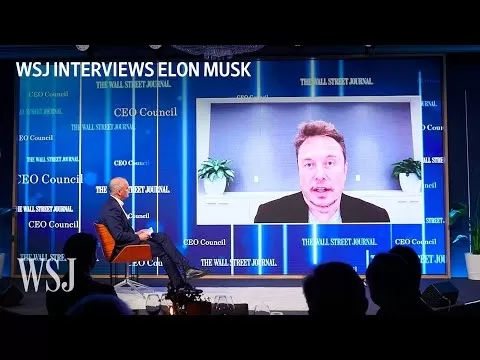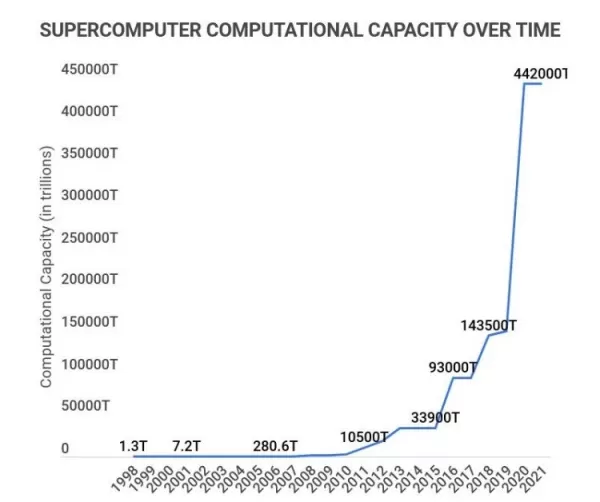Law of Accelerating Returns Explained: Pathway to AGI Development
In a recent interview, Elon Musk shared his optimistic view on the timeline for the advent of Artificial General Intelligence (AGI), stating it could be as soon as *“3 to 6 years”*. Similarly, Demis Hassabis, CEO of Google's DeepMind, expressed at The Wall Street Journal’s Future of Everything Festival that AGI might be *“a few years, maybe within a decade away”*. These predictions stand in contrast to the more conservative estimates from many in the AI community, who often suggest AGI might be a decade or even a century away. Some of this caution stems from a reluctance to pin down a specific timeline, fearing it might prove inaccurate. This wariness isn't new; back in 1956, during the Dartmouth Summer Research Project, the term "Artificial Intelligence" was born with the hope that machines with human-level intelligence would emerge within a generation, or about 25 years.
Geoffrey Hinton, often referred to as the godfather of AI, provides a more nuanced perspective. He recently adjusted his timeline, saying, *“Until quite recently, I thought it was going to be like 20 to 50 years before we have general-purpose AI. And now I think it may be 20 years or less.”* This shift in perspective reflects the rapid progress in the AI field, largely fueled by advancements in deep reinforcement learning algorithms that drive today's Large Language Models (LLMs).
Despite these breakthroughs, the current state of AI remains limited to narrow applications such as chatbots and language translation. AGI, on the other hand, represents a more ambitious goal: a type of artificial intelligence that can understand, learn, and apply knowledge across a wide range of tasks at a human level. While the leap to AGI seems daunting to many, some believe in the inevitability of its development, driven by what's known as “The Law of Accelerating Returns.”
This concept was introduced by Ray Kurzweil, a renowned author, inventor, and futurist. Kurzweil's contributions span optical character recognition (OCR), text-to-speech synthesis, and speech recognition technology. After publishing his influential book “How to Create a Mind,” which delves into understanding the human brain to engineer the ultimate thinking machine, he was recruited by Google to work on AI projects. Eric Schmidt, then Google's CEO, was particularly inspired by this book.
Perhaps even more pertinent is Kurzweil's book “The Singularity is Near,” published in 2005. Its predictions have closely followed the trajectory of technological growth over the past two decades. Notably, Kurzweil predicts the achievement of AGI by 2029, aligning with the recent forecasts by Elon Musk and Demis Hassabis.
The Law of Accelerating Returns suggests that the rate of change in various evolutionary systems, including technological advancements, grows exponentially. In the realm of technology, this means we can anticipate increasingly rapid innovations as each new generation of technology builds upon the last, accelerating the pace of progress.
This law highlights how the explosive growth of technologies like Generative AI is riding on the wave of other converging exponential technologies, such as chip manufacturing and 3-D printing. This convergence acts as a catapult for AI to become the most powerful application ever created.
Back in 2001, Ray Kurzweil made a striking prediction:
An analysis of the history of technology shows that technological change is exponential, contrary to the common-sense “intuitive linear” view. So we won’t experience 100 years of progress in the 21st century — it will be more like 20,000 years of progress (at today’s rate). The “returns,” such as chip speed and cost-effectiveness, also increase exponentially. There’s even exponential growth in the rate of exponential growth. Within a few decades, machine intelligence will surpass human intelligence, leading to The Singularity — technological change so rapid and profound it represents a rupture in the fabric of human history. The implications include the merger of biological and nonbiological intelligence, immortal software-based humans, and ultra-high levels of intelligence that expand outward in the universe at the speed of light.
This technological explosion is closely tied to Moore's Law, which posited that the number of transistors on a chip would double roughly every two years. When combined with other technological breakthroughs, it illustrates the thriving nature of the Law of Accelerating Returns. Kurzweil's observations on the future of humanity based on this law are profound:
- Evolution utilizes positive feedback where more effective methods from one stage of progress are used to create the next, resulting in an exponentially increasing rate of progress.
- The "order" of information in evolutionary processes (how well it serves a purpose, such as survival) increases over time.
- The "returns" of an evolutionary process, such as speed, cost-effectiveness, or overall power, also grow exponentially.
- As a process like computation becomes more effective, more resources are invested in its further development, leading to a second level of exponential growth.
- Biological evolution and technological evolution are both evolutionary processes, with the latter emerging from and continuing the former.
- A specific paradigm provides exponential growth until it reaches its limit, at which point a paradigm shift enables continued exponential growth.
Readers are encouraged to explore Kurzweil's blog to reflect on the implications of this exponential growth and consider how it aligns or differs from their own experiences since the blog's initial publication.
While not as widely recognized as Moore's Law, the Law of Accelerating Returns remains as pertinent today as when it was first introduced.

Watch this video on YouTube

Related article
 AGI Set to Revolutionize Human Thought with a Universal Language Breakthrough
The emergence of Artificial General Intelligence presents transformative potential to reshape human communication through the creation of a universal language framework. Unlike narrow AI systems designed for specialized tasks, AGI possesses human-lik
AGI Set to Revolutionize Human Thought with a Universal Language Breakthrough
The emergence of Artificial General Intelligence presents transformative potential to reshape human communication through the creation of a universal language framework. Unlike narrow AI systems designed for specialized tasks, AGI possesses human-lik
 OpenAI Reaffirms Nonprofit Roots in Major Corporate Overhaul
OpenAI remains steadfast in its nonprofit mission as it undergoes a significant corporate restructuring, balancing growth with its commitment to ethical AI development.CEO Sam Altman outlined the comp
OpenAI Reaffirms Nonprofit Roots in Major Corporate Overhaul
OpenAI remains steadfast in its nonprofit mission as it undergoes a significant corporate restructuring, balancing growth with its commitment to ethical AI development.CEO Sam Altman outlined the comp
 AI Leaders Ground the AGI Debate in Reality
At a recent dinner with business leaders in San Francisco, I threw out a question that seemed to freeze the room: could today's AI ever reach human-like intelligence or beyond? It's a topic that stirs more debate than you might expect.
In 2025, tech CEOs are buzzing with optimism about large langua
Comments (19)
0/200
AI Leaders Ground the AGI Debate in Reality
At a recent dinner with business leaders in San Francisco, I threw out a question that seemed to freeze the room: could today's AI ever reach human-like intelligence or beyond? It's a topic that stirs more debate than you might expect.
In 2025, tech CEOs are buzzing with optimism about large langua
Comments (19)
0/200
![RonaldMitchell]() RonaldMitchell
RonaldMitchell
 August 18, 2025 at 11:01:00 AM EDT
August 18, 2025 at 11:01:00 AM EDT
Elon’s 3-6 year AGI timeline sounds wild, but I’m hyped! 🚀 Curious if DeepMind’s on the same page or just riding the hype train.


 0
0
![ThomasBaker]() ThomasBaker
ThomasBaker
 August 8, 2025 at 9:00:59 AM EDT
August 8, 2025 at 9:00:59 AM EDT
Wow, AGI in 3-6 years? That's wild! Musk's timeline sounds ambitious, but I'm curious if DeepMind's on the same page. The idea of machines matching human smarts soon is both thrilling and a bit spooky. 😅 Anyone else wondering how this'll change our daily lives?


 0
0
![BillyLewis]() BillyLewis
BillyLewis
 August 1, 2025 at 3:55:26 AM EDT
August 1, 2025 at 3:55:26 AM EDT
Elon’s 3-6 year AGI prediction is wild! 😲 Feels like we’re speeding toward a sci-fi future. But is society ready for it?


 0
0
![JuanScott]() JuanScott
JuanScott
 July 30, 2025 at 9:41:19 PM EDT
July 30, 2025 at 9:41:19 PM EDT
Elon’s 3-6 year AGI timeline sounds wild, but I’m hyped! 🚀 Wonder if we’re ready for machines smarter than us.


 0
0
![StevenHill]() StevenHill
StevenHill
 April 23, 2025 at 5:37:25 AM EDT
April 23, 2025 at 5:37:25 AM EDT
일론 머스크의 AGI 3-6년 예측? 야심찬 것 같지만, 저는 찬성해요! 이 도구는 개념을 정말 잘 설명해줘서 미래로 가는 로드맵 같아요. 다만, 실제 사례가 더 있었으면 좋겠어요. 🤔


 0
0
![BenHernández]() BenHernández
BenHernández
 April 23, 2025 at 4:58:14 AM EDT
April 23, 2025 at 4:58:14 AM EDT
イーロン・マスクのAGIが3〜6年で来るという予測は野心的ですが、私は大賛成です!このツールはコンセプトを非常にわかりやすく説明していて、未来への道筋のようです。ただ、もっと実世界の例が欲しいですね。🤔


 0
0
In a recent interview, Elon Musk shared his optimistic view on the timeline for the advent of Artificial General Intelligence (AGI), stating it could be as soon as *“3 to 6 years”*. Similarly, Demis Hassabis, CEO of Google's DeepMind, expressed at The Wall Street Journal’s Future of Everything Festival that AGI might be *“a few years, maybe within a decade away”*. These predictions stand in contrast to the more conservative estimates from many in the AI community, who often suggest AGI might be a decade or even a century away. Some of this caution stems from a reluctance to pin down a specific timeline, fearing it might prove inaccurate. This wariness isn't new; back in 1956, during the Dartmouth Summer Research Project, the term "Artificial Intelligence" was born with the hope that machines with human-level intelligence would emerge within a generation, or about 25 years.
Geoffrey Hinton, often referred to as the godfather of AI, provides a more nuanced perspective. He recently adjusted his timeline, saying, *“Until quite recently, I thought it was going to be like 20 to 50 years before we have general-purpose AI. And now I think it may be 20 years or less.”* This shift in perspective reflects the rapid progress in the AI field, largely fueled by advancements in deep reinforcement learning algorithms that drive today's Large Language Models (LLMs).
Despite these breakthroughs, the current state of AI remains limited to narrow applications such as chatbots and language translation. AGI, on the other hand, represents a more ambitious goal: a type of artificial intelligence that can understand, learn, and apply knowledge across a wide range of tasks at a human level. While the leap to AGI seems daunting to many, some believe in the inevitability of its development, driven by what's known as “The Law of Accelerating Returns.”
This concept was introduced by Ray Kurzweil, a renowned author, inventor, and futurist. Kurzweil's contributions span optical character recognition (OCR), text-to-speech synthesis, and speech recognition technology. After publishing his influential book “How to Create a Mind,” which delves into understanding the human brain to engineer the ultimate thinking machine, he was recruited by Google to work on AI projects. Eric Schmidt, then Google's CEO, was particularly inspired by this book.
Perhaps even more pertinent is Kurzweil's book “The Singularity is Near,” published in 2005. Its predictions have closely followed the trajectory of technological growth over the past two decades. Notably, Kurzweil predicts the achievement of AGI by 2029, aligning with the recent forecasts by Elon Musk and Demis Hassabis.
The Law of Accelerating Returns suggests that the rate of change in various evolutionary systems, including technological advancements, grows exponentially. In the realm of technology, this means we can anticipate increasingly rapid innovations as each new generation of technology builds upon the last, accelerating the pace of progress.
This law highlights how the explosive growth of technologies like Generative AI is riding on the wave of other converging exponential technologies, such as chip manufacturing and 3-D printing. This convergence acts as a catapult for AI to become the most powerful application ever created.
Back in 2001, Ray Kurzweil made a striking prediction:
An analysis of the history of technology shows that technological change is exponential, contrary to the common-sense “intuitive linear” view. So we won’t experience 100 years of progress in the 21st century — it will be more like 20,000 years of progress (at today’s rate). The “returns,” such as chip speed and cost-effectiveness, also increase exponentially. There’s even exponential growth in the rate of exponential growth. Within a few decades, machine intelligence will surpass human intelligence, leading to The Singularity — technological change so rapid and profound it represents a rupture in the fabric of human history. The implications include the merger of biological and nonbiological intelligence, immortal software-based humans, and ultra-high levels of intelligence that expand outward in the universe at the speed of light.
This technological explosion is closely tied to Moore's Law, which posited that the number of transistors on a chip would double roughly every two years. When combined with other technological breakthroughs, it illustrates the thriving nature of the Law of Accelerating Returns. Kurzweil's observations on the future of humanity based on this law are profound:
- Evolution utilizes positive feedback where more effective methods from one stage of progress are used to create the next, resulting in an exponentially increasing rate of progress.
- The "order" of information in evolutionary processes (how well it serves a purpose, such as survival) increases over time.
- The "returns" of an evolutionary process, such as speed, cost-effectiveness, or overall power, also grow exponentially.
- As a process like computation becomes more effective, more resources are invested in its further development, leading to a second level of exponential growth.
- Biological evolution and technological evolution are both evolutionary processes, with the latter emerging from and continuing the former.
- A specific paradigm provides exponential growth until it reaches its limit, at which point a paradigm shift enables continued exponential growth.
Readers are encouraged to explore Kurzweil's blog to reflect on the implications of this exponential growth and consider how it aligns or differs from their own experiences since the blog's initial publication.
While not as widely recognized as Moore's Law, the Law of Accelerating Returns remains as pertinent today as when it was first introduced.

Watch this video on YouTube

 AI Leaders Ground the AGI Debate in Reality
At a recent dinner with business leaders in San Francisco, I threw out a question that seemed to freeze the room: could today's AI ever reach human-like intelligence or beyond? It's a topic that stirs more debate than you might expect.
In 2025, tech CEOs are buzzing with optimism about large langua
AI Leaders Ground the AGI Debate in Reality
At a recent dinner with business leaders in San Francisco, I threw out a question that seemed to freeze the room: could today's AI ever reach human-like intelligence or beyond? It's a topic that stirs more debate than you might expect.
In 2025, tech CEOs are buzzing with optimism about large langua
 August 18, 2025 at 11:01:00 AM EDT
August 18, 2025 at 11:01:00 AM EDT
Elon’s 3-6 year AGI timeline sounds wild, but I’m hyped! 🚀 Curious if DeepMind’s on the same page or just riding the hype train.


 0
0
 August 8, 2025 at 9:00:59 AM EDT
August 8, 2025 at 9:00:59 AM EDT
Wow, AGI in 3-6 years? That's wild! Musk's timeline sounds ambitious, but I'm curious if DeepMind's on the same page. The idea of machines matching human smarts soon is both thrilling and a bit spooky. 😅 Anyone else wondering how this'll change our daily lives?


 0
0
 August 1, 2025 at 3:55:26 AM EDT
August 1, 2025 at 3:55:26 AM EDT
Elon’s 3-6 year AGI prediction is wild! 😲 Feels like we’re speeding toward a sci-fi future. But is society ready for it?


 0
0
 July 30, 2025 at 9:41:19 PM EDT
July 30, 2025 at 9:41:19 PM EDT
Elon’s 3-6 year AGI timeline sounds wild, but I’m hyped! 🚀 Wonder if we’re ready for machines smarter than us.


 0
0
 April 23, 2025 at 5:37:25 AM EDT
April 23, 2025 at 5:37:25 AM EDT
일론 머스크의 AGI 3-6년 예측? 야심찬 것 같지만, 저는 찬성해요! 이 도구는 개념을 정말 잘 설명해줘서 미래로 가는 로드맵 같아요. 다만, 실제 사례가 더 있었으면 좋겠어요. 🤔


 0
0
 April 23, 2025 at 4:58:14 AM EDT
April 23, 2025 at 4:58:14 AM EDT
イーロン・マスクのAGIが3〜6年で来るという予測は野心的ですが、私は大賛成です!このツールはコンセプトを非常にわかりやすく説明していて、未来への道筋のようです。ただ、もっと実世界の例が欲しいですね。🤔


 0
0





























